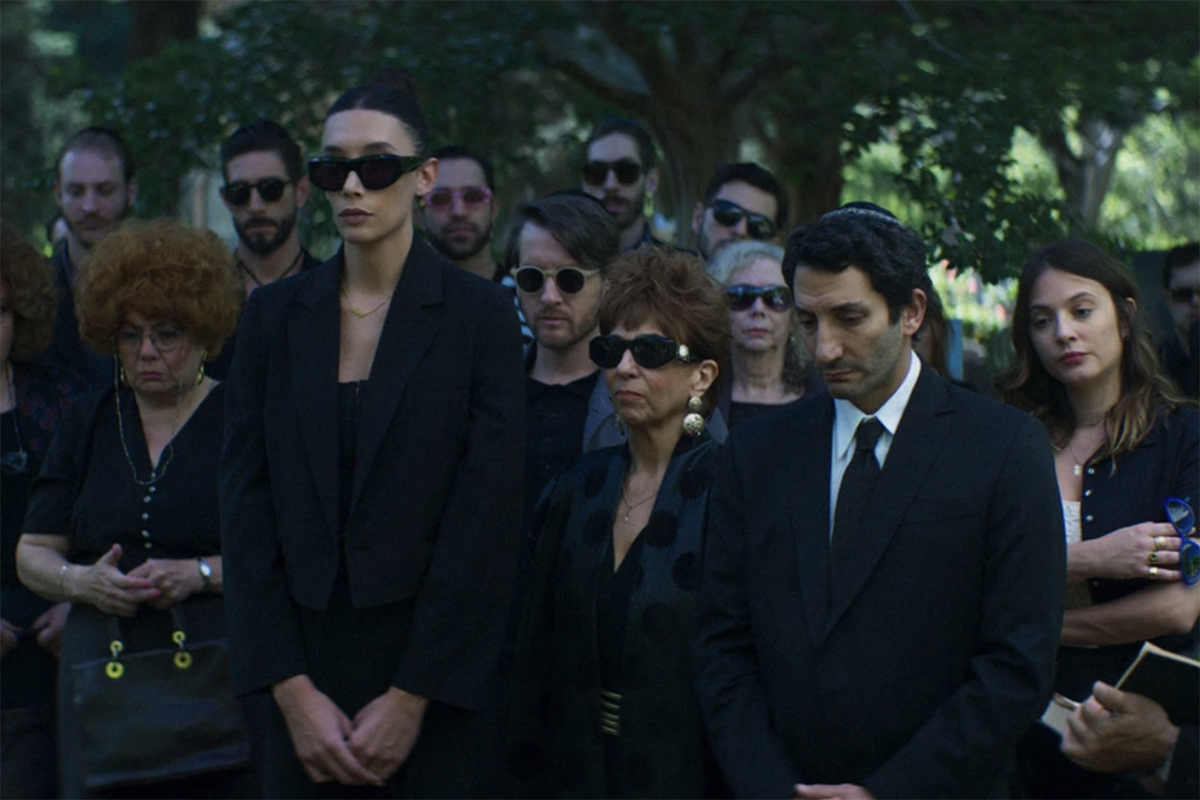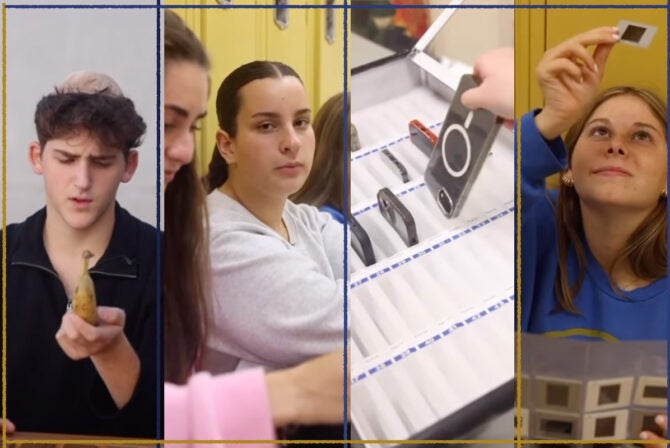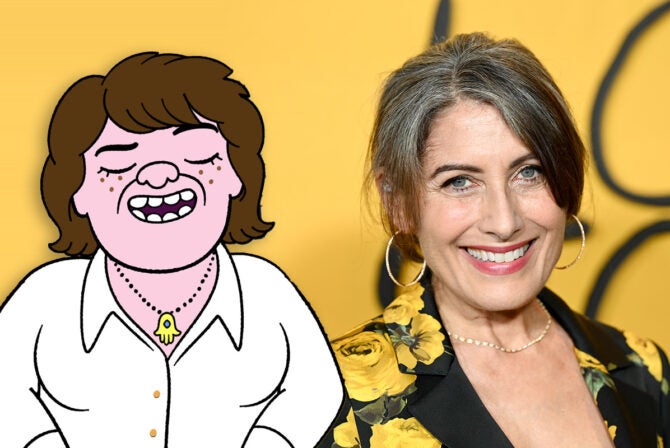“Emilia Pérez,” the French-directed musical film about a Mexican drug cartel boss who undergoes gender-affirming surgery (carried out by an Israeli surgeon, no less), is the biggest and most controversial Oscar contender this year. But last year, another Spanish-language musical movie about a transgender woman landed on Netflix, and it is one that I believe, despite its unevenness, is worth the watch.
And unlike “Emilia Perez,” which has been criticized for the way it depicts transgender people and Latin people, “Transmitzvah” is a more respectful film about the communities that it portrays — both transgender, Jewish and Argentinian.
“Transmitzvah” was directed and co-written by Daniel Burman, the man behind the Jewish Netflix hit “Yosi, the Regretful Spy.” It tells the story of Mumy, a successful Yiddish singer searching to reclaim her voice by having the bar mitzvah she didn’t have as a kid.
The movie opens in the cabaret that is Singman Fashion, Mumy’s family’s clothing and fabric store. At a family dinner, young Mumy, known then by her given name Rubén Singman, starts singing the Yiddish classic “Chiribim, Chiribom” and then tells her family that she can’t participate in her upcoming bar mitzvah.
“When I saw myself in my suit,” she tells her father, Arón (Alejandro Awada), “I saw myself in the synagogue as a man, and it seemed to me… just awful.” Mumy makes a sort of b’nai mitzvah speech of her own right there, saying that the Jewish coming-of-age ceremony is all about taking responsibility for yourself, and that is what she’s doing, like the biblical Miriam did before.
It’s a moment that tears her family apart — but not in the way you might expect. Mumy’s family accepts that she is a girl, but it is the shirking of her given Hebrew name that her dad struggles with. “I love you, I support you,” he tells her, but asks her to get to the harbor of adulthood with that precious name he gave her, Rubén, and then sail away as Mumy. The teen replies that she is taking on a name that is an homage to her Jewish legacy — Mumy Chaya, for her grandmother, and Singer, for the sewing machine, an ode to the family business. Her father then lashes out, calling the name “bullshit.”
Many years later, Mumy Singer is a celebrated international Yiddish music star (and yes, the idea of there being a celebrated international Yiddish sensation is honestly such a magical concept). This movie has two grandiose and camp numbers that feature classic Jewish songs, the aforementioned “Chiribim, Chiribom” and “Hine Ma Tov,” which is technically a Hebrew song, and Penélope Guerrero who plays Mumy is such a fabulous performer of these numbers.
Mumy travels home with her partner and dance troop to Argentina to reunite with her family, including her brother Eduardo (Juan Minujín), her mother Miriam (Alejandra Flechner playing the ideal lovable, big-haired and big-hearted Jewish mom) and her ailing father. She reconciles touchingly with her father before he passes away, but after his Jewish funeral, Mumy’s grief steals her voice.
The solution, she surmises, has to be this: She needs to have that Jewish rite of passage she never had.
“Transmitzvah” is a gorgeous, trippy, strange and funny movie. At its heart is, in every way, the love of Jewish family. Miriam is a Jewish queen full of feminist wisdom. Her dad is flawed but loving. But it’s the relationship between Mumy and her brother, who is on the precipice of a divorce, that’s the most magical and central in the movie. They are two halves of a whole, twin souls despite not being twins at all. Mumy has a boyfriend who supports her career, but when she feels at a loss, it’s a pastrami sandwich with her brother that she seeks. And when she needs to go on that bar mitzvah journey, it’s her brother who drives shotgun.
And what a journey it is. “Transmitzvah” is full of Jewish specificities and details. Jewish mysticism and sages, from Rashi to Abulafia, make their way into Mumy’s journey towards a bar mitzvah. She consults with a traditional rabbi, whom she rejects — she is not one to be merely tolerated, she wants to be embraced. But she also rejects the mealy-mouthed acceptance of a more inclusive and untraditional denomination. Mumy is thirsty for the kind of tradition her father venerated. She goes to a mikvah-like pool, synagogues, Jewish gymnasiums, weddings, a pilgrimage of Jewish exile, all in an attempt to find her voice, her purpose, once more.
You might not be satisfied with where Mumy’s journey eventually takes her, as I wasn’t with the movie’s ending. But I loved much of Mumy’s story. I loved hearing Hebrew and Yiddish, witnessing Jewish spaces across Buenos Aires and beyond, gay kippah-clad couples and Jewish mysticism enthusiasts raising pigeons. And more than anything, I loved this loving tale of Judaism and the powerful, magnetic trans woman at its center.








